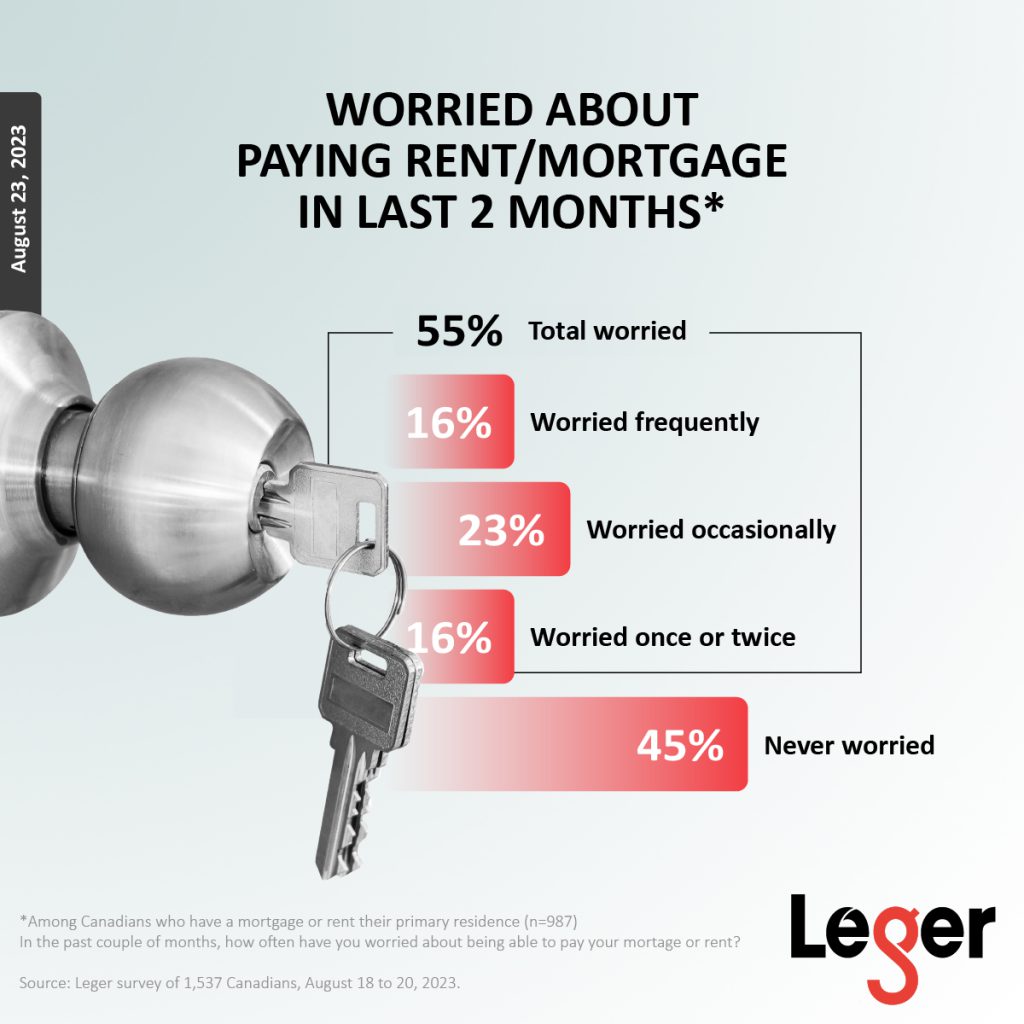The housing crisis in Canada has been a pressing issue across the country, especially given inflation and interest rate hikes. From August 18 to 20, 2023, we surveyed Canadians about their perceptions of increasing rental costs, worries about paying their rent/mortgage, and agreement with potential government actions to improve the rental situation in Canada.
Some of the key highlights of our survey about the housing crisis in Canada include…
Concerns about housing affordability and rent/mortgage payments are high
- In the past couple of months, 55% of Canadians who have a mortgage or rent their primary residence have worried about being able to pay their mortgage or rent. This proportion is even higher among those between the ages of 18 and 34 (66%), Albertans (67%), and British Columbians (68%).

- 95% of Canadians think increasing rental costs and the lack of affordable rental homes in Canada is a serious problem (66% very serious, 28% somewhat serious).
- 15% of Canadians who own their primary residence have rental space that they are not currently renting, and the same proportion could turn part of their space into something rentable but have not.
- 40% of Canadians blame the federal government for the housing crisis, while 32% blame their provincial government, and 6% their municipal government. Homeowners are more likely to blame the federal government (43% vs 35% among renters), while renters are more likely to blame their provincial government (37%).
Potential government actions to improve the rental situation
- The majority of Canadians support all mentioned initiatives that government could implement to help address the rental situation. The strongest support among the six ideas tested is for providing incentives for developers (79% support), government-supplied affordable housing (79%), and tighter rent control (77%) while disincentives for short-term rentals (56%) were least supported. Renters are significantly more likely than owners to support the various initiatives.
Survey Methodology
- A web survey was conducted among 1,537 Canadians 18 years of age or older. Respondents had the option of completing the survey in English or in French and were randomly recruited using Leger’s LEO online panel.
- The data was collected from August 18 to 20, 2023.
- Technically, a margin of error should not be associated with a non-probability sample (Web panel in this case). However, for comparative purposes, a probability sample of 1,537 respondents would have a margin of error of ±2.5%, 19 times out of 20.
- The results were weighted according to age, gender, mother tongue, region, education and presence of children in the household in order to ensure a representative sample of the Canadian population.
